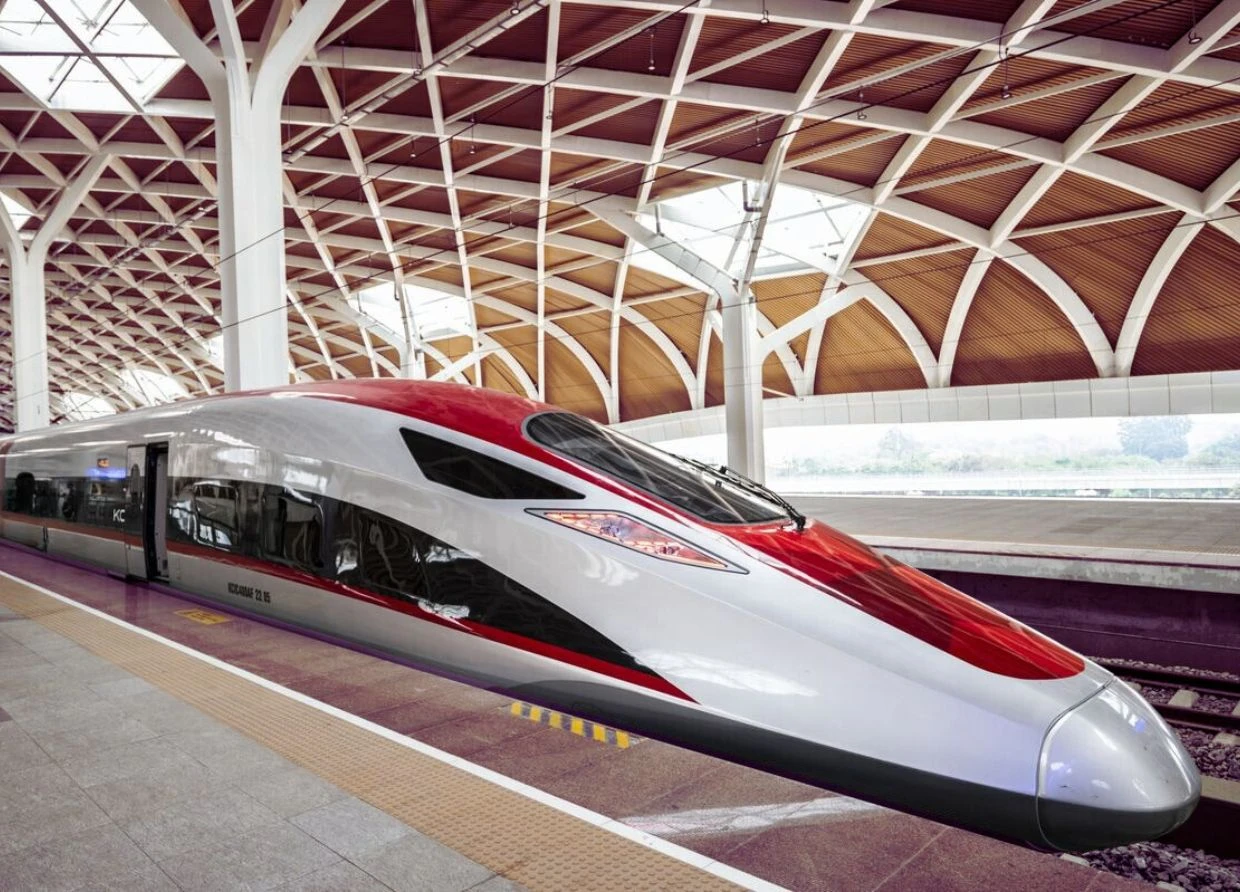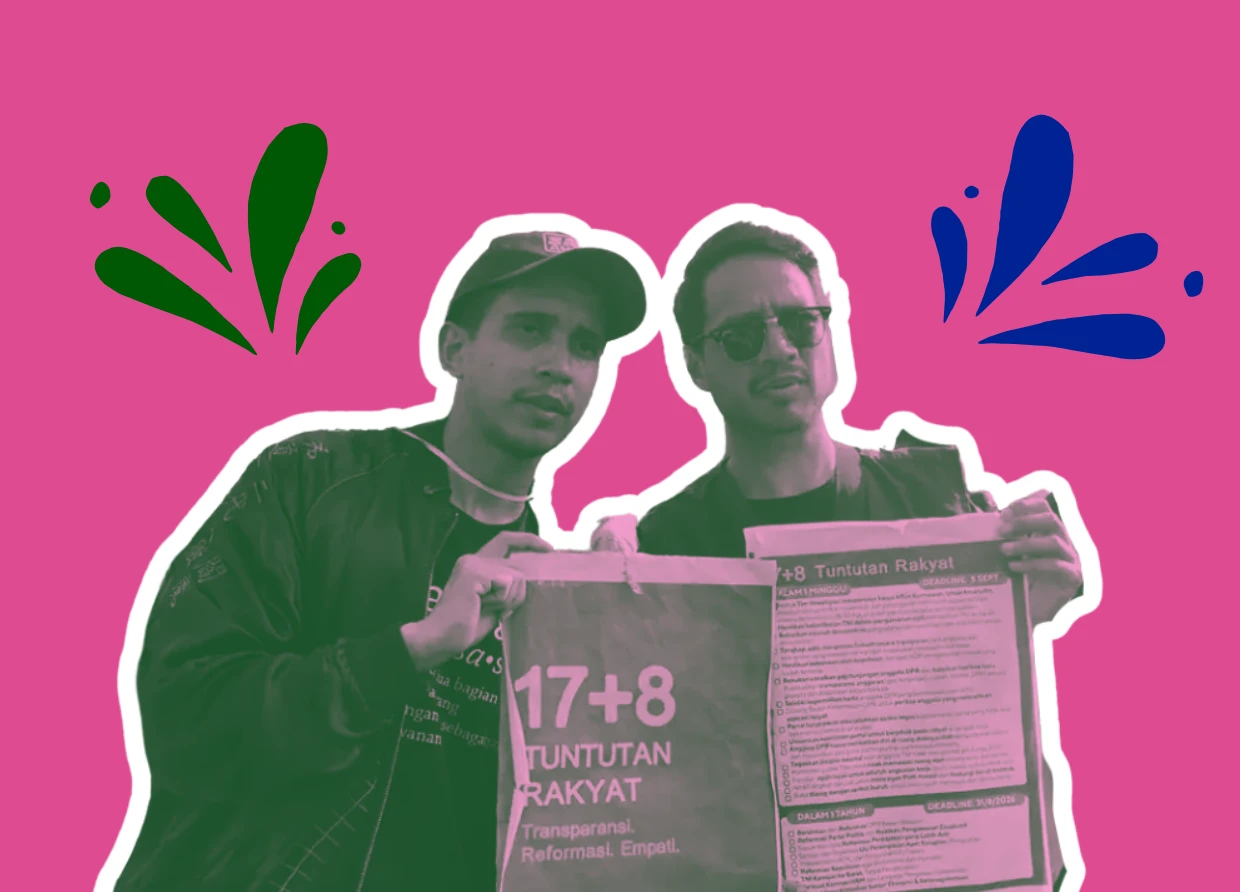INDONESIA LAUNCHES SOUTHEAST ASIA'S FIRST BULLET TRAIN CONNECTING JAKARTA AND BANDUNG
A Quantum Leap in Indonesian Transportation: The WHOOSH Bullet Train Reduces Jakarta-Bandung Travel to Under an Hour

In a historic milestone, Indonesia inaugurated Southeast Asia's first-ever bullet train, linking its two largest cities, Jakarta and Bandung. The high-speed rail, known as WHOOSH (time-saving, optimal operation, reliable system) and part of China's Belt and Road infrastructure initiative, commenced public operations on Monday after facing a series of delays and setbacks. The $7.3 billion project, primarily funded by Chinese state-owned companies, promises to transform travel in the region.
Originally slated for launch on October 1, the grand inauguration ceremony took place at the Halim railway station in the capital, Jakarta. The event was graced by the presence of President Joko Widodo, First Lady Iriana, and several cabinet ministers.
"The Jakarta-Bandung high-speed train is the first of its kind in Indonesia and Southeast Asia, with a remarkable speed of 350 kilometers per hour," President Widodo announced to thunderous applause from the audience before sounding a ceremonial red alarm to mark the official commencement of service.
"This achievement is the result of exceptional teamwork among various stakeholders, including the central government, local government, state-owned enterprises, private sectors, the public, and the Chinese government and its affiliated companies," added Luhut Binsar Pandjaitan, Indonesia's coordinating maritime and investment minister.
Videos shared on social media showcased the train's spacious, air-conditioned cabins and panoramic windows offering breathtaking views of the Indonesian countryside as the train sped along its route.
The new bullet train will run between the Halim railway station in East Jakarta and West Bandung's Padalarang railway station in West Java, known for its status as a major arts and culture hub. Covering a distance of 86 miles (138 kilometers), the high-speed rail is designed to reduce travel time between Jakarta and Bandung from three hours to less than an hour, with a top speed of approximately 217 miles per hour. Importantly, the train operates on electricity, producing no direct carbon emissions.
Administered by the joint state venture PT Kereta Cepat Indonesia China (PT KCIC), the railway is seamlessly integrated with local public transport systems. The trains have been adapted to suit Indonesia's tropical climate and feature a safety system capable of responding to emergencies like earthquakes and floods.
There are discussions underway to extend the high-speed line to Surabaya, a major port and the capital of East Java Province, as revealed by PT KCIC director Dwiyana Slamet Riyadi in earlier statements to Chinese state media. Additionally, plans are in place to include stops at other major cities such as Semarang and Yogyakarta, known for being the gateway to Borobudur, the largest Buddhist temple globally.
The Jakarta-Bandung high-speed railway comprises eight cars, all equipped with Wi-Fi and USB charging points, and can accommodate up to 601 passengers. The service offers three classes of seats: first, second, and VIP.
Indonesia, the world's fourth-largest country and the largest economy in Southeast Asia, has actively pursued investment from China, its primary trade and investment partner. In July, Indonesian and Chinese leaders unveiled a series of projects, including the construction of a multi-billion dollar Chinese glass factory on the island of Rempang in Indonesia's Riau Islands Archipelago, as part of a new 'Eco-City.' This announcement sparked protests from indigenous islanders opposing the displacement of their villages.
President Widodo and Chinese Premier Li Qiang personally tested the new high-speed railway throughout September. The train deal was originally signed in 2015 as part of China's Belt and Road Initiative, with construction commencing later that year. Although initially expected to be completed in 2019, the project encountered multiple delays due to the Covid-19 pandemic, land procurement challenges, and rising costs.
Director Dwiyana of PT KCIC hailed the Jakarta-Bandung high-speed railway as a remarkable example of bilateral cooperation between Indonesia and China, emphasizing its potential to enhance Indonesian infrastructure and foster the growth of the country's railroad and manufacturing industries.
#THE S MEDIA #Media Milenial #Bullet Train #High-Speed Rail #Transportation Infrastructure #Indonesia-China Collaboration #Jakarta-Bandung Connectivity #Sustainable Travel #Belt and Road Initiative #President Joko Widodo #Environmental Impact


























